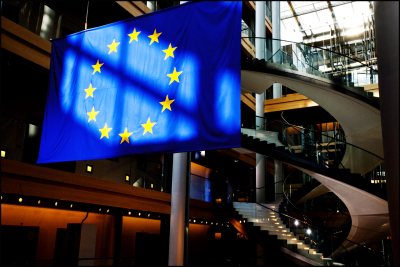This article first appeared in the Progressive Post. For the French version, click here [PDF]
The Commission’s proposals to deepen Economic and Monetary Union have been described as a “power-grab”, but may restore balance to a field so far dominated by the largest EU countries.
The one thing that everyone can agree on is that the eurozone needs reform. The 2010-2012 crisis response had to be organised ad-hoc, at all-night summits under constant pressure from markets reopening on Monday morning. These reforms did not solve the crisis, but they were all that EU Member States could agree on. Calm returned only when the European Central Bank (ECB) filled the vacuum, stretching its mandate to buy more time by doing “whatever it takes” to save the euro. Nonetheless, to this day, no one really knows how Italy will service its debt once monetary policy returns to normal. The time has come for further reforms, following formal proposals presented by the European Commission on 6 December. Germany may not have a government but Germany’s Chancellor Merkel and France’s President Macron did commit to presenting a joint vision of eurozone reform by March.
The Commission proposals were mainly criticised as a “power grab”, or as Brussels being pre- occupied purely with itself. While true on the surface, both these criticisms miss the point.
The EU’s response to the financial crisis
The crisis response had been so far-reaching that it actually went beyond what was possible within the framework of the EU Treaties. This made “intergovernmental” solutions necessary, i.e. Member States acting among themselves, only delegating some tasks to the Commission. Working out- side the treaties pre-empts many mechanisms that ensure democratic accountability, efficiency, and integrity. It cuts out bodies such as the European Parliament, the Anti-Fraud Office, the Court of Auditors and European Ombudsman, to name but a few, thereby reducing direct democratic control, as well as checks on corruption or waste of taxpayer money that would otherwise be routine. Where the Court of Auditors has been able to indirectly assess the EU’s bailout programmes, for example, far-reaching recommendations were deemed necessary. Policy outcomes have not always been optimal.
The recourse to intergovernmental arrangements therefore empowered an informal outfit composed of eurozone finance ministers. Created essentially as a talking shop for economic pol- icy coordination, the Eurogroup was suddenly thrust into the position of having to micro-man- age bailouts and fine countries that disregard budget rules. By making individual finance ministers responsible for the decisions of the Eurogroup as a whole, the Eurogroup’s accountability has been fragmented, limiting control by national parliaments in practice.
At best, this leads to consensus agreements via peer pressure. At worst (read: when big sums of money are involved), it leads to all-night summits where ministers are arm-twisted into concessions behind the closed doors of the Eurogroup.
This stands in stark contrast to traditional EU working methods. From the first day, the EU has fine-tuned ways to protect small countries from large Member States throwing their weight around in pursuit of national interests. This was done through a strong central authority tasked with pursuing the interests of Europe as a whole.
The Commission focused its narrative on the new reform proposals around increased democratic legitimacy. But this is more than a strategy to push the Member States out of their comfort zone. To improve policy outcomes, eurozone reforms have to address how decisions are made in Brussels. While fiscal responsibilities should remain at the national level, this does not mean that we need no accountability for the EU level coordination of such policies, especially if some decisions are effectively (yet informally) taken at that level.
Eurozone watchdog network set up
Everybody agrees that account- ability is a good thing, but what this means in practice is usually left vague or negotiated away. This is why Transparency International EU has just launched a watchdog network on eurozone governance with 18 organisations, based on a manifesto for a transparent, accountable and democratic euro. As negotiations progress, we aim to spell out clearly what proper legal mechanisms to ensure accountability would look like, and insist on reforms that will make the single currency more democratic.
Transparency International calls on Member States to bring euro-zone governance into line with the EU acquis. A clearer role for EU institutions, and even the creation of an EU Finance Minister, hold the promise to clarify who is in charge, and how they can be held accountable.
Citizens in the ‘North’ believe they are ‘paying’ for others’ mistakes, while citizens in the ‘South’ believe their economies are being vandalised by austerity. In the medium term, this is not sustainable.
Having survived the financial challenge to the euro, anti-establishment parties may yet bring about an even more dangerous, political challenge. It really is time to fix the roof while the sun is shining…






